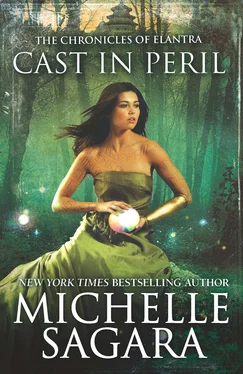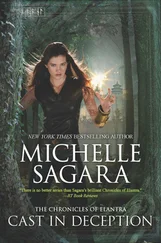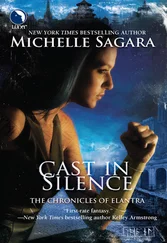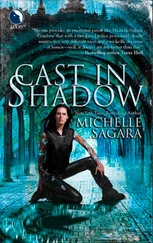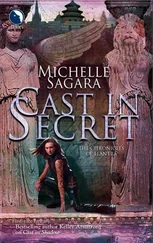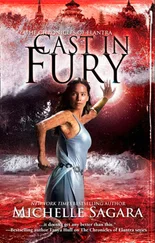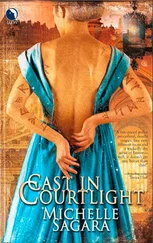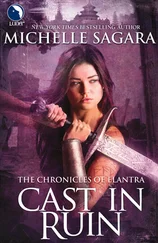“And if it’s Barrani, they’d know that. They’ve been at war with Dragons on and off for centuries. If Tiamaris claims this as his, he’s not selling any of it—not for something as mundane as stolen treasury funds.”
“What, exactly, would the Exchequer or the Human Caste Court derive from that? Stealing funds to give to Barrani to buy chattel doesn’t seem like motivation to risk life and limb—literally. It doesn’t make sense.”
“No.” She slowed. “It doesn’t. But I think it doesn’t make sense because we don’t know where the people went. We’re missing part of the big picture. What we’re not missing is the fact that ‘Michael,’ whoever the hells he was, walked Yvander across the Nightshade border.” With a great deal of bitterness, she added, “There’s no way he doesn’t know. He fingered the Arcanum. He knew who to blame. How?”
“You’re going to Nightshade.”
“I am.”
Chapter 6
The sky was so gray, it was almost the color of silence. The rage bled away as Kaylin walked; it left a familiar despair in its wake.
It had never occurred to Kaylin, growing up in the streets of Nightshade, that a fief could be almost safe. But in Tiamaris, Ferals were hunted, and the ranks of those who formed Tiamaris’s unofficial guard force were growing; people wanted to hunt Ferals here; the young wanted to be heroes. Only the dangerously insane had ever done so in Nightshade, and in Kaylin’s admittedly small experience, they were just as likely to kill as the Ferals and for reasons that were just as clear.
In Tiamaris, people came to the fieflord—or Tara, at least—to report their missing parents.
Tiamaris had owned the fief for almost two months, if that, and these were the changes he had made. Dragons were a force of nature, as all Immortals were, but this Dragon, she understood and, in her own way, admired.
Nightshade had owned his fief for far longer than she had been alive. He could have made the fief an entirely different place, just as Tiamaris was attempting to do. He hadn’t. He had never particularly cared about the people who eked out a miserable existence in the streets surrounding his castle. They were mortal and no more important than any other insignificant and transitory possession.
The Ablayne came into view. She had seen it so often from the wrong side of its banks that it was almost a comfort. The bridge that crossed Tiamaris wasn’t empty, and the men—and women—who walked it weren’t attempting to be furtive. They walked it the way the citizens of Elantra walked to any job or to any market. They did blink a little when they saw Kaylin and Severn, but only because they wore the tabard of the Hawks.
With the streets of the city firmly beneath her feet, she relaxed—but not enough. “Will you go back to the office?” she asked.
“If you’d prefer,” he replied with only a small gap between question and answer to indicate hesitance.
She nodded, and he accompanied her down the riverside street until they reached a more familiar bridge. This one contained no foot traffic, no obvious guards, no carpenters or linguists; it was a bridge in name only and served as it had always served: as a wall, a way of keeping people in their respective homes.
“I’ll be fine,” she told Severn. “It’s not my death he wants.”
“You don’t know what he wants.”
It was true. She didn’t. “I don’t always know what I want.”
“No.” His smile was slight. “Mostly, people don’t.”
“Or they want the wrong things.”
“Wrong?”
“Things they can’t ever have. Safety. Security. Things to remain the same. Some things,” she added quickly. She turned to him at the foot of the bridge. “I want to stay where we are.”
He didn’t misinterpret, although he could have. Instead, to her surprise, he hugged her. She stiffened and then relaxed, slowly, into the warmth of it. “Don’t live in the past,” he told her.
“I’m not. It’s just—it’s part of me. I feel like I barely managed to step out of the shadows, all of them. Ferals, loss, myself. I was kept as an assassin. I’m now paid to protect people from what I once was—and I want that. You—” She swallowed.
“What I did for the Wolves wasn’t what you did for Barren.”
“Excepting the obvious, how was it different?”
“It was legal.”
“Technically, what I was doing was legal, as well. Barren was the Law.”
“Kaylin—”
“I know.” She pulled away, lifting a hand and forcing herself to smile. “We’re not doing it anymore. We’re Hawks now. I’m not Barren’s. You’re not—”
He lifted a finger to her mouth and the words ended abruptly. “Go ask what you need to ask. I’ll go to Missing Persons and file a report with Mallory and Brigit.”
* * *
It was hard to imagine that she’d once lived in Nightshade. She knew she had, but the visceral truth of life in its streets as an orphan had eased its constant grip; when she looked at the worn roads and old buildings, she could see them as they were, as they might have been in a different context. She could meet the furtive gazes of strangers, walk down the streets, and evince no surprise or dismay at the way the children and their minders fell silent, shrinking toward the cover of familiar doors or alleys to allow her to pass.
She’d been one of those children, although she’d played on the streets far less often. Some of the older minders—grandparents or great-aunts and -uncles—had been kind enough, but that kindness extended only as far as empty streets and a lack of Nightshade’s thugs. If necessary to preserve their own, they would have handed her over in a minute; it was a fact they all accepted.
Your kin wouldn’t, for the most part, although that was no guarantee of safety.
Now, Nightshade’s mark adorning her cheek, no one would touch her. Most of the people who sidled away had no idea what the mark meant, which was fair; Kaylin wasn’t clear on the concept, either. But Nightshade’s mortal thugs, and worse, his Barrani thugs, did. It gave her a freedom in the fief that she had never had and never thought to have anywhere on this side of the Ablayne.
That freedom extended all the way to Castle Nightshade.
The streets that surrounded the Castle itself were empty of all but the fortunate few who made small deliveries to the fieflord, and they didn’t stop to chat for a variety of reasons. They weren’t dressed as foreigners; they were dressed as fieflings. Any delivery made to Castle Nightshade implied wealth, and any wealth was a target. If you couldn’t be parted from your wealth while alive, death wasn’t much of an impediment.
She approached the guards who waited beyond the portcullis through which the open courtyard was visible. The portcullis served as the entrance to the Castle, but not in the traditional way. It was a portal that moved you from the street side of the metal bars to the inside of the Castle’s grand foyer, with a lot of nausea and magical discomfort in between.
Andellen was one of the two men who stood guard. He bowed. “Lord Kaylin.” The words immediately caused a similar bow in the other guard. Kaylin disliked the gesture, but understood that Andellen wasn’t offering it for the sake of her pride or her position. It was tradition, and given how little tradition existed in his life in the fiefs, she tried hard not to begrudge it.
“Lord Andellen.”
“Lord Nightshade is waiting.”
She grimaced. “Of course he is.”
* * *
Passage through the portal was always disorienting, in part because Castle Nightshade’s architecture wasn’t fixed. Like the Tower of Tiamaris, it shifted in place, responding to the desire or command of its Lord. The foyer was the only part of the Castle that Kaylin was certain remained the same between visits: it was too loud, too ostentatious, and far too bright. Large didn’t matter.
Читать дальше
